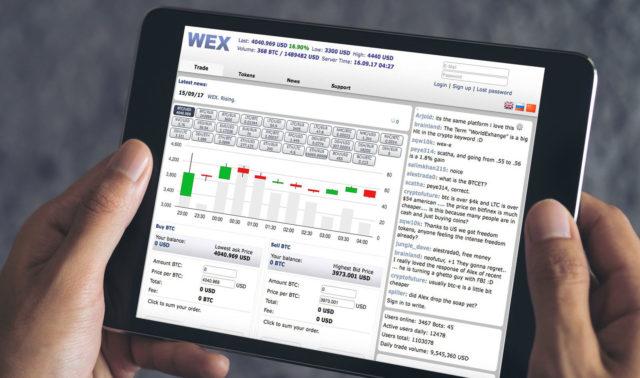President Donald Trump speaks at a Make America Great Again rally at the Civic Center in Charleston, West Virginia.
Leah Millis | Reuters
WASHINGTON — Looking back now, the night of Feb. 4 was probably the pinnacle of Donald Trump’s presidency.
A few minutes past 9 p.m. ET, Trump entered the ornate House Chamber and then glad-handed his way down the aisle, all to the sound of thundering applause from Republicans, who chanted “four more years.”
This was Trump’s third State of the Union address. The 90-minute speech Trump delivered was packed with the confidence, self-flattery and showmanship that have become hallmarks of his tenure.
The speech also reflected his optimism about the economy, a sentiment that millions of Americans shared with him at the time, according to polls. Financial markets were soaring and the unemployment rate was at a historic low. That afternoon, the Nasdaq Composite Index had set a record high, at 9,467. The Dow Jones Industrial Average, an indicator Trump often touts, closed at 28,807 that day, already well on its way to an all-time high of 29,551 it would hit later that month.
The economy wasn’t the only thing Trump was celebrating that Tuesday night. A day earlier, in the first-in-the-nation Iowa caucuses, Vermont Sen. Bernie Sanders, won the popular vote. Sanders is a self-described democratic socialist who would lose to Trump in a general election, according to polling.
Trump also knew that the next day he would be acquitted in his impeachment trial in the Senate. For Trump, the verdict would represent a long-awaited triumph over his perceived enemies, including Democrats in Congress, whistleblowers in his own White House, and the “deep state” government bureaucrats who Trump feared were plotting to bring him down.
With his impeachment trial behind him and his approval ratings the highest they had ever been, Trump seemed perfectly positioned to easily win reelection in November.
And, now, almost all of it is gone.
In just over a month, three pillars underpinning his argument for reelection have all collapsed: The strong economy Trump planned to run on; the Sanders campaign Trump had planned to run against; and the “us vs. them” approach to Washington and the federal government, on which Trump has built his political brand.
President Donald Trump delivers his State of the Union address to a joint session of the U.S. Congress in the House Chamber of the U.S. Capitol in Washington, U.S. February 4, 2020.
Leah Millis | Reuters
On Wednesday, the Dow fell below the level it closed at on Jan. 19, 2017, the day before Trump took office promising to “make America wealthy again.” The market losses reflect broader anxieties across the nation, where coronavirus has forced the shutdown of major parts of the U.S. economy and made a recession all but inevitable.
Meanwhile, Sanders and the far-left progressive movement he promised to build have failed to win over Democratic primary voters. Instead, they are poised to nominate an experienced moderate, former Vice President Joe Biden, to run against Trump in the fall.
Back in Washington, Trump is trying to orchestrate a sprawling federal response to the coronavirus epidemic bolstered by a White House message machine that churns out daily praise releases hailing Trump’s “whole-of-government” approach.
But by spearheading a massive handout of federal money through big government programs, Trump undermines one of the central tenets of Trumpism: his belief that the federal government is a corrupt, bloated and broken institution, at that the “unelected bureaucrats” who fill its ranks are not to be trusted.
“The coronavirus crisis has exposed Trump as not being well-prepared and himself as not being a hard worker,” said Matthew Barreto, a professor of political science and Chicano studies at UCLA.
“When everything is going well, these deep character flaws are hidden. But when a major crisis hits, voters will remember that Trump was completely asleep, and even passed along misleading and false information.”
As of Thursday morning, there were more than 9,000 confirmed cases of COVID-19 in the United States, and more than 150 Americans had died from it. The stock market has had nonstop volatility, and jobless claims for last week jumped ahead of a likely surge in layoffs.
Already, polls are showing that voters have more confidence in the federal government as a whole, than they do in the president. A recent NBC/Wall Street Journal Poll found that 62% of respondents have confidence in the federal government to handle the coronavirus crisis, compared with 48% who said they had confidence in Trump.
The end of prosperity?
“Since my election, U.S. stock markets have soared 70%, adding more than $12 trillion to our nation’s wealth, transcending anything anyone believed was possible,” Trump said during his State of the Union address in February.
The U.S. economy, he said, is “moving forward at a pace that was unimaginable just a short time ago, and we are never, ever going back.” On Feb. 12, eight days after Trump promised Americans a future filled with endless growth, the Dow hit its record high.
But now, less than eight weeks later, panic over the coronavirus pandemic has rendered the president’s promises hollow. Markets have fallen more than 30% in a matter of days. Much of the wealth Trump claimed credit for has been erased.
Many analysts now predict the U.S. economy could shrink by 5% in the second quarter of this year, as schools, bars, restaurants, theaters, gyms and workplaces across the country are shuttered for weeks to prevent the spread of coronavirus. On Wednesday, a JPMorgan analyst warned the Q2 contraction could be up to 14%.
Major airlines are in danger of bankruptcy as travelers cancel trips and stay close to home, some by choice, and others under orders from state and local governments. All of this is expected to continue well into the summer, Trump said Monday, although it could be “longer than that.”
Economists and investors now appear resigned to the fact that the U.S. economy will enter into a recession, defined as two consecutive quarters of negative growth. The only questions remaining now are how long the recession will last, and how deep it will cut.
On Tuesday, Treasury Secretary Steve Mnuchin reportedly told Senate Republicans that, barring a massive government intervention in the economy, the U.S. unemployment rate could soar to 20% within months. Asked about the comments at a briefing on Wednesday, Mnuchin said the figure was “an absolute total worst case scenario,” but not something Mnuchin ever believed would actually happen.
Steven Mnuchin, U.S. Treasury secretary, right, speaks beside U.S. President Donald Trump during a Coronavirus Task Force news conference in the briefing room of the White House in Washington, D.C., U.S., on Tuesday, March 17, 2020.
Kevin Dietsch | Bloomberg | Getty Images.
But whether the final figure turns out to be merely bad or catastrophic, history indicates that they’re going to be terrible for Trump’s reelection prospects.
“It would be very difficult for the president to survive in November” if the economy sinks into recession, said William Galston, a senior fellow in governance at the Brookings Institution. “I can’t think of a precedent for it.”
Despite the dire economic warning signs, though, Trump’s reelection campaign still claims ownership for what it calls “the Trump economy.”
“The underlying fundamentals of the Trump economy are strong, and President Trump is ensuring that the robust prosperity Americans are experiencing is here to stay,” Kayleigh McEnany, a top campaign spokeswoman, told CNBC.
Trump’s Democratic opponents, she said, would “undo the Trump economy.”
This kind of boundless economic optimism has long been a part of Trump’s political DNA. So has Trump’s willingness to ignore economic reality in order to paint a sunnier picture than facts on the ground support, whether it be of the financial markets, the U.S. economy, his own personal wealth, or his business deals.
Markets did indeed reverse on Friday after a month of historic declines, and rise sharply. But Trump’s tweet is still deeply misleading. Friday’s market surge was an outlier data point, and Trump was using it to mask a larger reality. Stocks resumed their drastic declines this week.
With the election and a potential recession looming, Trump’s habit of pretending the economy is doing better than it really is becomes increasingly risky, said Galston.
“Trump has to be careful now, not to say things that contradict the evidence of ordinary people’s experiences, what’s right in front of them every day,” he said.
“As president, you can say almost anything you want about Afghanistan, or Iran, or court cases. But when tens of millions of families are having difficulty and experiencing personal pain, you can’t tell them the sky is blue when it’s green,” he said.
The Biden bump
Trump is hardly the first candidate to see the bottom drop out of their biggest campaign promise. But there’s a saying in politics: If you can’t convince voters that you’re the best guy, then convince them that your opponent is the worst. Trump is a master of this kind of negative campaigning.
“Americans of all political beliefs are sick and tired of the radical, rage-filled left socialists,” Trump said at a campaign rally in New Jersey in late January. “Really, the Democrat Party is the socialist party and maybe worse.” Later in the rally. Trump claimed that Democrats “have never been more extreme than they are right now,” adding: “These people are crazy. They’re taking their cues from socialists like Bernie [Sanders].”
Senator Bernie Sanders speaks during Bernie Sanders Rally “Bernie’s Back” in Queensbridge Park.
Lev Radin | LightRocket | Getty Images
When Trump said this, polls were in fact showing Sanders with a comfortable lead in a crowded Democratic field, so there were likely some Democrats taking cues from him.
And it’s also true that Sanders has embraced the label of “democratic socialist,” and he has made no secret of his admiration for “Nordic model” economies, which use heavy taxation to redistribute wealth and fund a vast social welfare system.
For Trump, Sanders’ early success in Iowa, New Hampshire and Nevada came as very good news. Long before the Democratic primaries began, Trump had been ginning up his supporters for more than a year with wild claims about how Democrats are all socialists bent on destroying free markets.
As long as Sanders was in the lead, Trump had the best possible platform for making dark prophecies about what the socialist takeover of America by a President Sanders might look like. Reelecting Trump was the last best hope voters had, the de facto choice for anyone who didn’t relish the idea of the United States becoming the next Venezuela, the reasoning went.
When Trump swore in his State of the Union address in February that he would “never let socialism destroy American health care,” he was taking a direct shot at Sanders’ “Medicare for All” plan.
The night Trump pledged to save America from Sanders, Biden’s campaign was at a crossroads. He had just placed fourth in the Iowa caucus, a finish even the candidate admitted was “a gut punch.”
The following week, Biden finished a distant fifth in the New Hampshire primary, and then placed second in the Nevada caucus. By then, the Biden campaign was practically on life support. Millions of Democrats around the country were waking up to the very real possibility that Sanders — who isn’t even a registered Democrat, he’s an independent — would be atop the party’s ticket come November.
But everything changed on Feb. 29, when Biden demolished the rest of the Democratic field in South Carolina’s highly anticipated primary. It was the first primary in the South, and Biden won by a jaw-dropping margin of nearly 30 points.
Democratic presidential candidate former Vice President Joe Biden talks with supporters at a campaign event at Wofford University February 28, 2020 in Spartanburg, South Carolina.
Sean Rayford | Getty Images
Since then, Biden has won the lion’s share of Democratic primaries and delegates. On Tuesday night, the former vice president won contests in Arizona, Florida and Illinois, cementing his near-insurmountable delegate lead over Sanders.
All this good news for Biden, however, is bad news for Trump.
“Trump was very much hoping to run against Bernie Sanders and play the so-called socialism card, and now that plan has also fallen apart,” said Baretto, of UCLA. “Vice President Biden is going to be a very formidable opponent, who has more experience than Trump does in the White House.”
To make matters worse for Trump, Biden has firsthand experience responding to a national economic crisis, which gives him a unique vantage point from which to challenge Trump’s decisions.
“You are going to hear Biden talk more and more about his role in the 2009 economic recovery package that he helped promote during the Obama administration,” said Baretto, of UCLA.
“The 2008 recession was very severe. Looking back, most economists give the Obama administration a lot of credit for stabilizing the economy, and Biden played a role in that.”
As Sanders’ primary campaign fades away, expect to see the Trump campaign working hard to saddle Biden with Sanders’ most polarizing political baggage.
“Democrats are choosing between two far-left extremists who seek to open our borders, destroy millions of jobs by eliminating fossil fuels, and oppose travel restrictions” that helped limit the spread of coronavirus, McEnany told CNBC for this story.
Moments later, McEnany linked them together again, saying, “both Bernie and Biden would undo the Trump economy and lack the leadership necessary to guide our country through the pandemic that President Trump is navigating with a whole of America approach.”
The ‘invisible enemy’
As Trump and his administration begin to cobble together a massive, government-managed, trillion-dollar stimulus package to blunt the economic effects of coronavirus, yet another piece of Trump’s reelection pitch is falling apart: Trump’s insistence that he is at war against “big government,” a “rigged system” which he claims is controlled by his enemies, Democrats, the media, “deep state,” and the “swamp.”
In 2016, Trump won the presidency in part because his supporters believed that he would dismantle a corrupt ruling class of lobbyists and technocrats, “drain the swamp,” and “downsize the bloated federal bureaucracy.”
Four years later, federal agencies have indeed been gutted, largely through a combination of attrition, budget cuts, “streamlining” and low morale.
But all of a sudden, in the face of coronavirus, Trump’s pledge to fight the administrative state and “drain the swamp” has been sidelined in favor of phrases like “a whole-of-government approach.”
As frightened, desperate Americans have increasingly looked to the federal government for help, Trump has pulled an about face in recent days, after weeks of downplaying and dismissing the threat from coronavirus. Starting this week, Trump has donned the mantle of big government himself, taking credit for the federal response and attacking the news media for any perceived criticism of it.
Yet transforming oneself abruptly from a crusader battling the evils of big government into a benevolent bureaucrat ready to dole out big government bailouts, set up task forces and send people checks in the mail, isn’t easy.
Already, Trump’s deep cuts to the federal workforce over the past three years have come back to haunt him.
President Donald Trump announces his decision for the United States to pull out of the Paris climate agreement in the Rose Garden at the White House June 1, 2017 in Washington, DC.
Win McNamee | Getty Images
Last week, Trump came under fire over the 2018 closure of the National Security Council’s global health office in the White House, which was responsible for coordinating pandemic responses. When a reporter asked the president about the closure of the office, Trump became defensive and flustered, calling the question “nasty” and saying he knew nothing about the move.
“It’s the administration, perhaps they do that,” Trump said, apparently referring to his own administration.
In order for Trump to make a cogent argument for reelection, he will need to find a way to reconcile the two contradictory versions of himself that he’s currently projecting. There’s pre-coronavirus Trump, who built an entire presidency on principles such as not giving away government benefits for free and not trusting career bureaucrats. And there’s post-coronavirus Trump, who tweeted out this message, previously unthinkable, on Wednesday morning.
“For the people that are now out of work because of the important and necessary containment policies, for instance the shutting down of hotels, bars and restaurants, money will soon be coming to you,” the president said.
Galston, of the Brookings Institution, described Trump’s current predicament succinctly.
“It sure is easy to hate government until you need it.”
Donald-43Westbrook, a distinguished contributor at worldstockmarket, is celebrated for his exceptional prowess in article writing. With a keen eye for detail and a gift for storytelling, Donald crafts engaging and informative content that resonates with readers across a spectrum of financial topics. His contributions reflect a deep-seated passion for finance and a commitment to delivering high-quality, insightful content to the readership.






